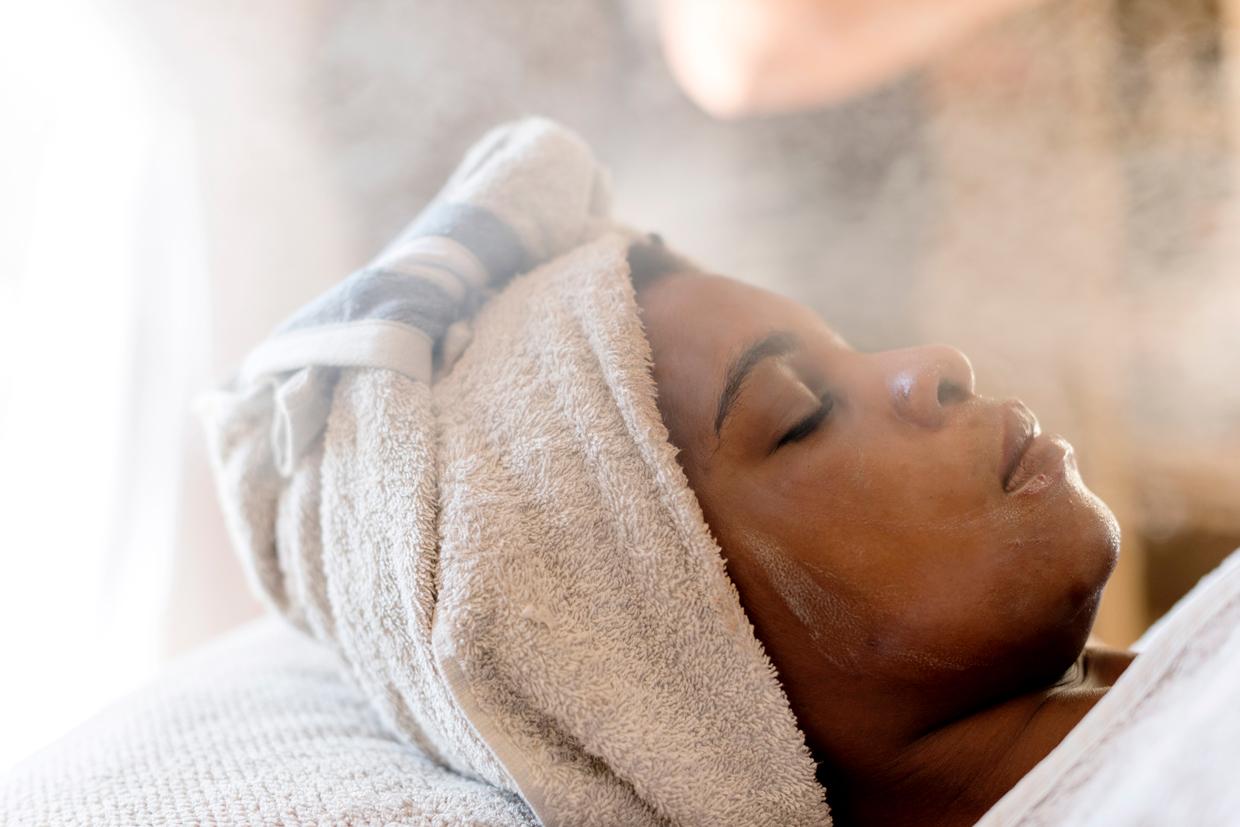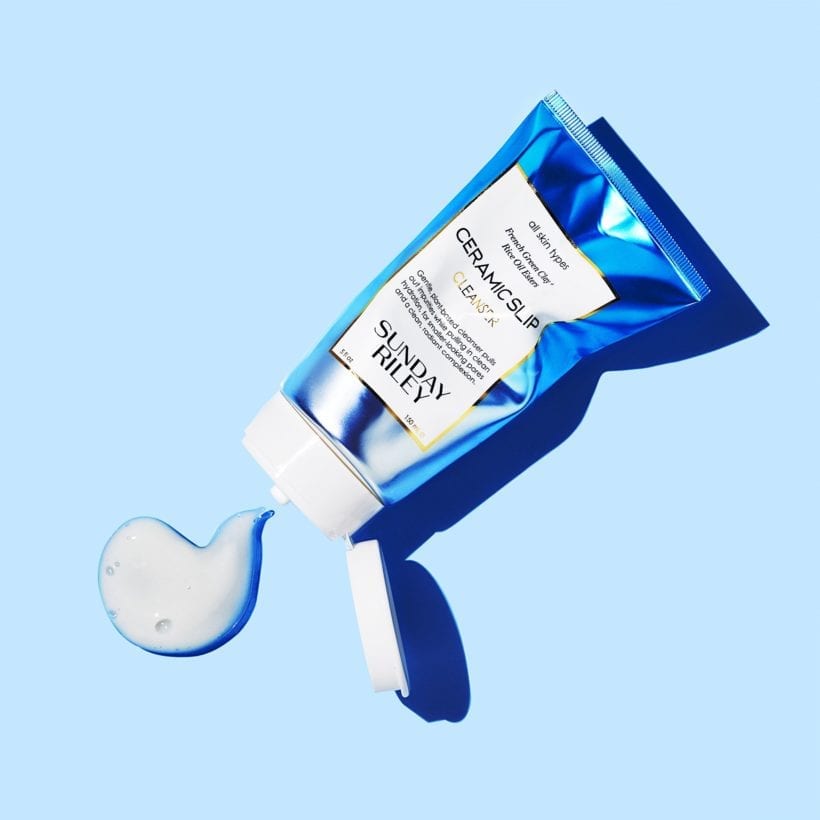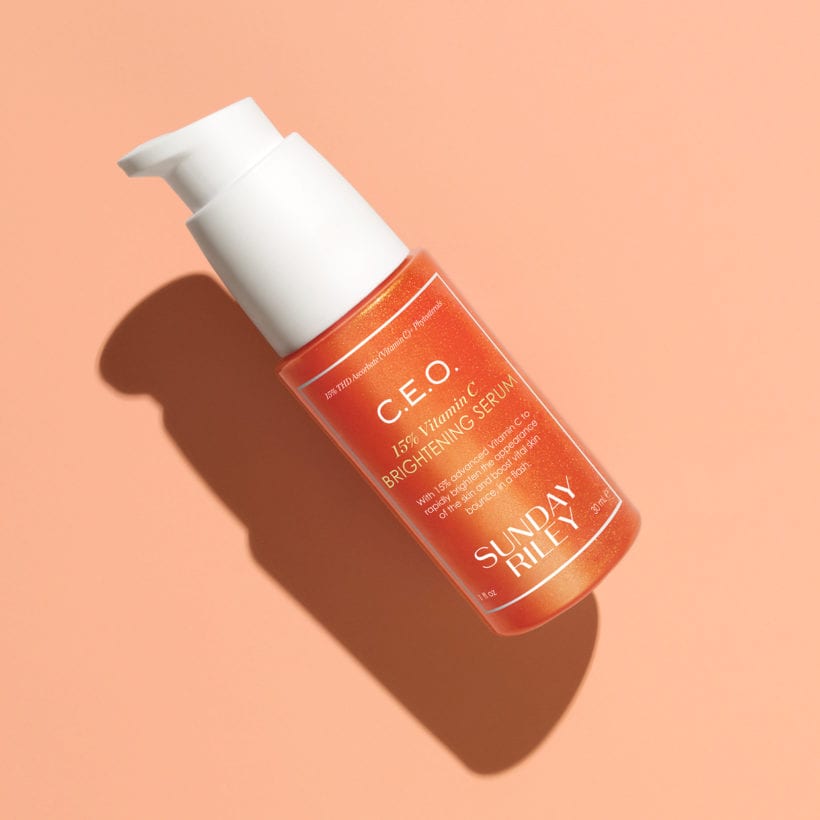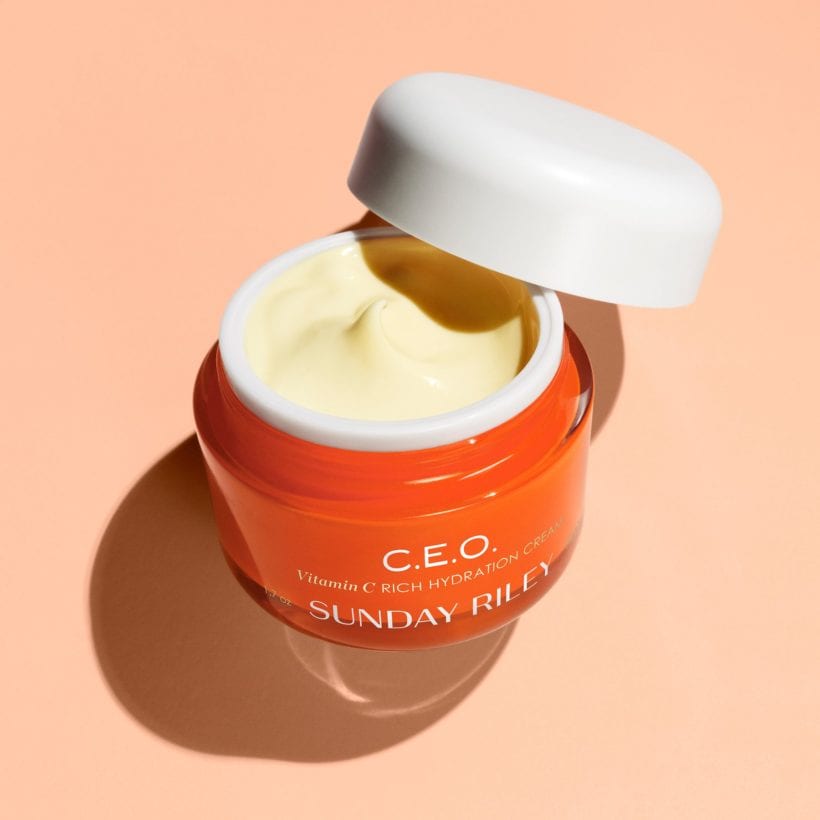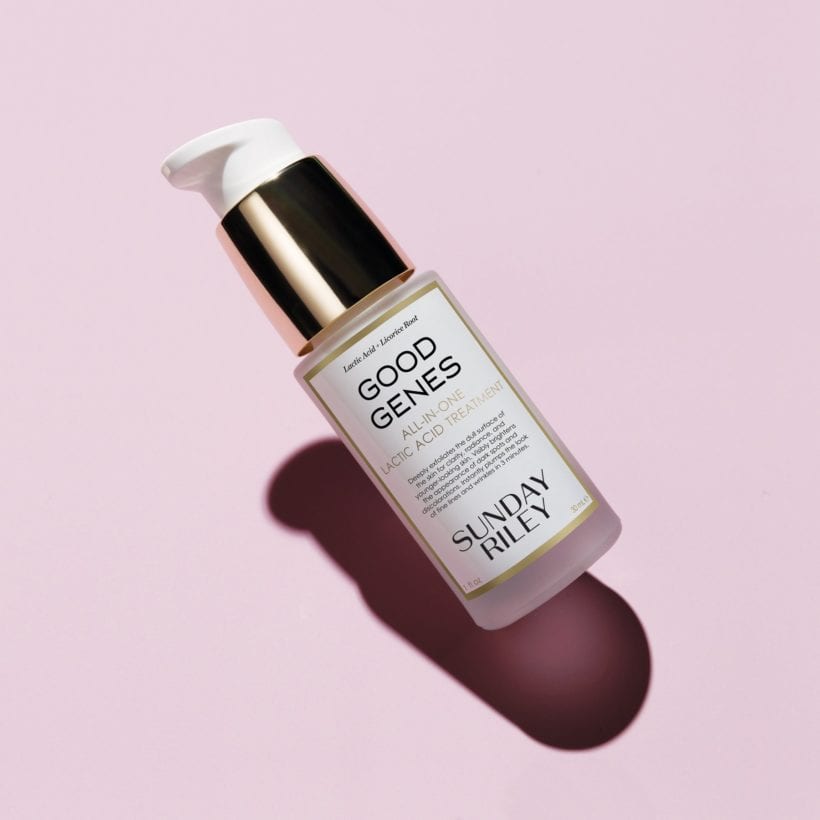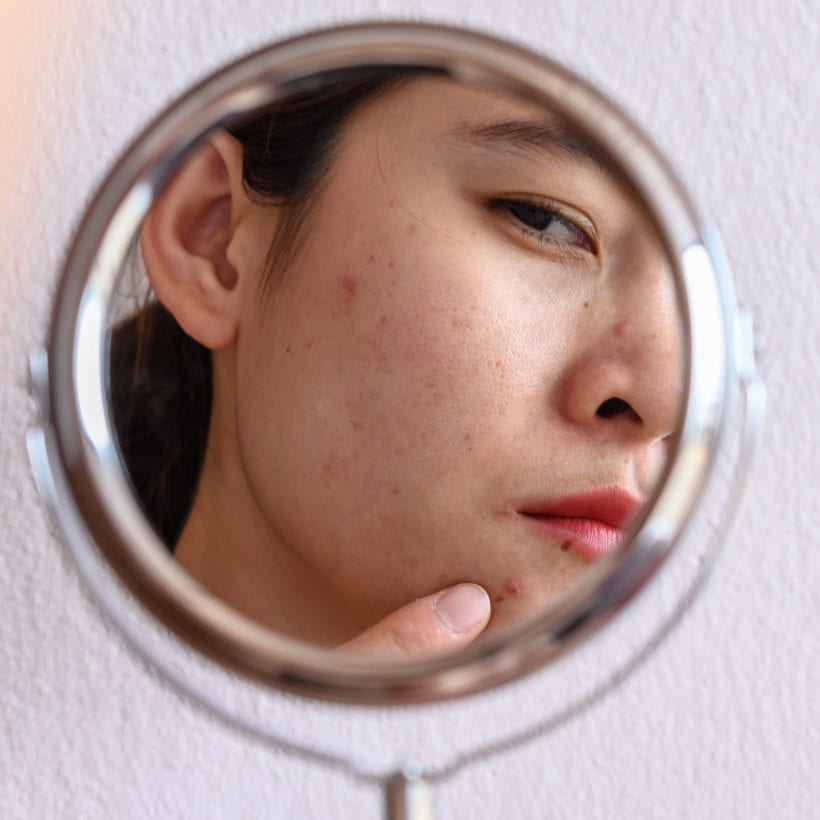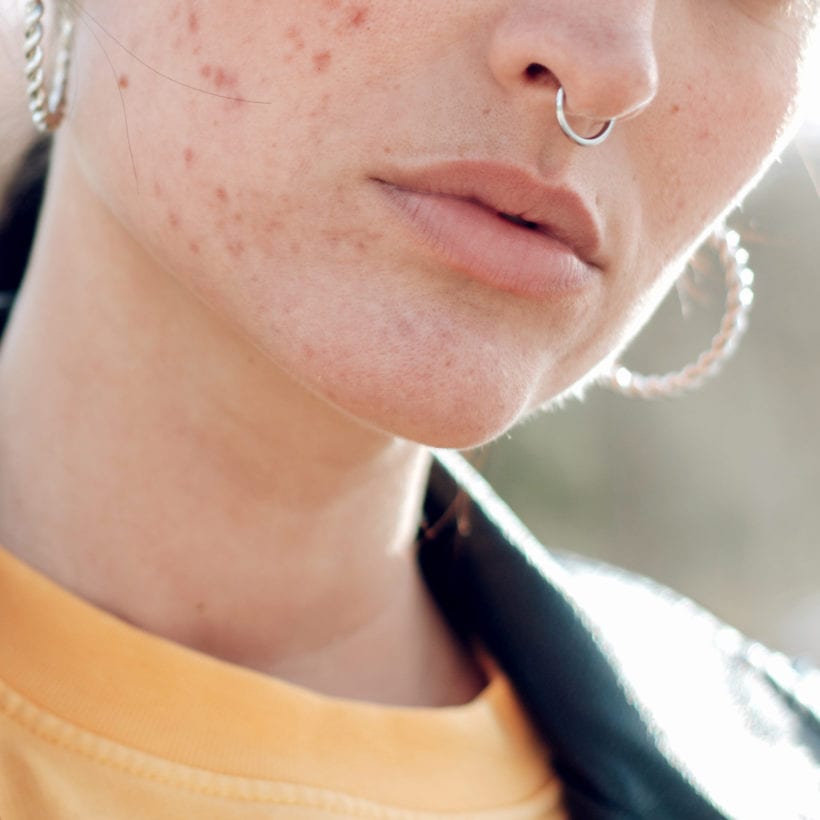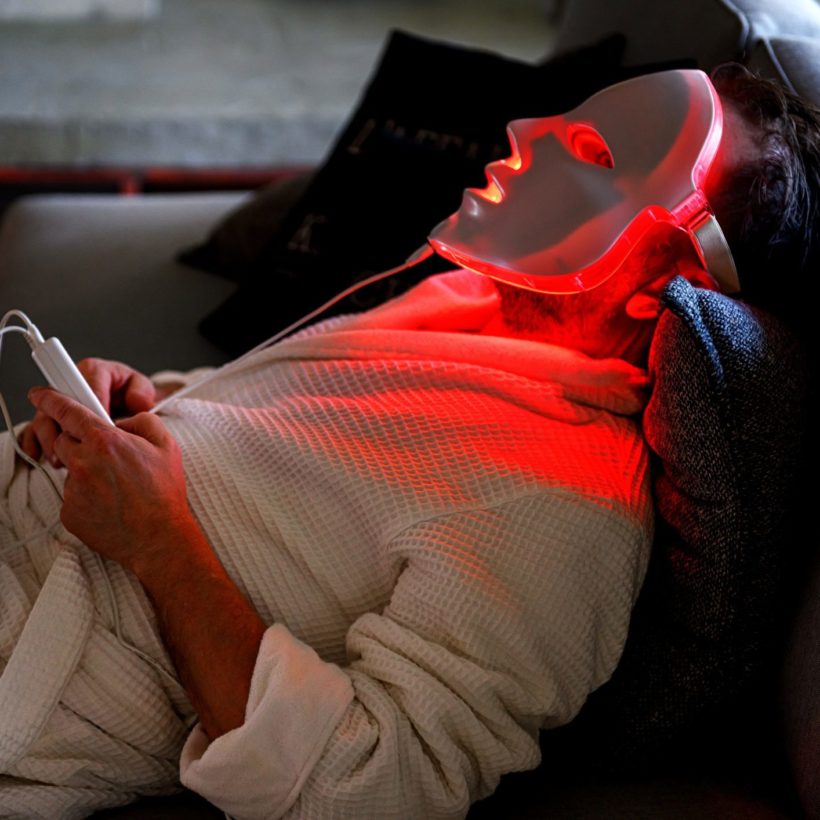If you’ve ever been to a spa or a steam room, or even just taken a super hot shower, then you already know how good facial steaming can feel. I’ve been known to hold my face over a pot of boiling water while making pasta because I love how the warmth feels on my face.
Recently at-home steamers have been having a resurgence (in part, thanks to videos popping up on TikTok). At-home steamers come in a variety of price points, and there’s some evidence that steaming can help remove blackheads, increase circulation, add hydration to the skin, and give the face an all-around glowy look. Here we spoke to triple-board certified dermatologist Dr. Marina Peredo about facial steaming.
What are the benefits of facial steaming?
“Steaming your face opens the pores, softens blackheads and can break up dirt and bacteria that has built up on the skin. It also promotes circulation, hydrates and softens the skin,” Dr. Peredo says. The steam heats the face which in turn warms the debris in the pores; this loosens the dirt and oil. Think about how much more liquid coconut oil is when it’s warmed up; the same thing happens to the oil in the pores, and when it’s more malleable, it can more easily come out.
Steaming also promotes circulation to the face which can leave skin looking glowy and bright. This added circulation happens because blood flows to the face when skin’s temperature increases (this happens at about the same time as skin begins sweating). If you have rosacea, you may want to skip the steam sesh all together; the heat can dilate blood vessels which makes redness worse.

Do at-home steamers work?
Dr. Peredo says yes, at-home steamers work. She recommends finding a steamer that uses nano-ionic technology “as the steam can go deeper into the skin and have better hydration benefits.” Nano-ionic steam has negatively charged ion particles created by the use of a conventional heating element paired with an ultrasonic vaporizer; this type of steam which can penetrate the skin more deeply, thereby enhancing moisture. Examples of nano-ionic steamers include the Pure Daily Care Nano Steamer or Panasonic’s Nano Ionic Compact One-Touch Operation Facial Steamer. For context, this type of technology is the same in air purifiers that produce negative ions that help clear the air of allergens by attaching to their positive ions and pulling them down.
Do more DIY forms of steaming work?
It can be hard to keep up with all the current beauty tools. Between jade rollers, gua shas, red light wands, (not to mention a UV light for sanitizing it all) you may be running out of space to store it all. It turns out you may want to clear some space for an actual steamer, because, as Dr. Peredo says, “DIY forms of steaming will work on your face, but an at-home steamer is more powerful than DIY methods.” She says if you are going to go the DIY route, she recommends putting an herb in the pot “such as lavender, which soothes and calms the skin or chamomile which helps dry or irritated skin.” It’s also important to be careful when steaming using a DIY method; be careful that the steam is not too hot and keep your face at least six to eight inches away.
What sort of skincare should follow steaming?
First things first, always steam skin that it’s clean. Dr. Peredo says it doesn’t matter if skin is damp or dry to begin with, but it should be freshly washed and product-free. After steaming for up to ten minutes (or less if it’s your first time or your skin feels too hot or irritated) rinse with cool water and pat the skin dry. Then apply a hydrating serum followed by a moisturizer. You could also exfoliate after steaming which may help remove oil and dirt that cause blackheads.
Steaming feels great, but it’s best not to do it more than once or twice a week. If you do it more frequently than that, you don’t give pores time to properly close. Steaming too often can also potentially cause eye irritation or redness, and it can also aggravate inflammatory conditions like acne or eczema if done too frequently.
We only recommend products we have independently researched, tested, and loved. If you purchase a product found through our links, Sunday Edit may earn an affiliate commission.
